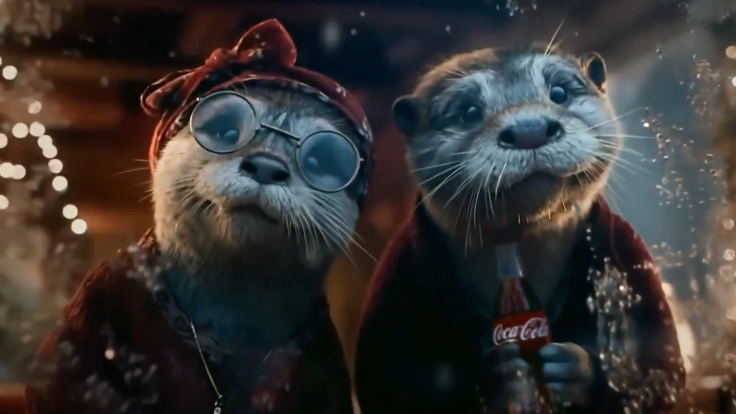Coca-Cola's AI Christmas Ad Sparks Backlash: Have They Gone Too Far with Its Holiday Campaign?
The drinks giant defends its decision to use AI for a second consecutive Christmas campaign, despite growing criticism over craftsmanship and creative authenticity

Coca-Cola has once again found itself at the centre of controversy after confirming that its 2025 Christmas advert was created entirely using generative artificial intelligence.
The drinks company's Christmas campaign has long been viewed as a hallmark of the holiday season, often setting the tone for festive advertising worldwide. However, for the second year in a row, Coca-Cola's festive film has drawn backlash after it was revealed that every frame was generated through artificial intelligence tools. The advert, which marks a follow-up to last year's similarly controversial campaign, has been met with mixed reactions from both consumers and creators.
Coca-Cola’s annual Christmas advert is AI-generated again this year.
— DiscussingFilm (@DiscussingFilm) November 3, 2025
The company says they used even fewer people to make it — “We need to keep moving forward and pushing the envelope… The genie is out of the bottle, and you’re not going to put it back in” pic.twitter.com/g1dogxS8Tq
Social media users have voiced concern about the growing reliance on AI, particularly in areas traditionally reserved for human artists and animators. Many have criticised the visual quality of the new advert, comparing it unfavourably to campaigns made by real animators. Others have raised ethical concerns about the broader implications of replacing creative labour with automated technology.
Despite the backlash, Coca-Cola has remained firm in its commitment to using AI as part of its marketing strategy. The company insists that audience engagement from its previous campaign was high, suggesting that the move has achieved its intended reach and visibility. According to Coca-Cola's head of generative AI, the brand is continuing its efforts to push creative boundaries through technology.
Coca-Cola Defends Its Use of AI
In an interview with The Hollywood Reporter, Coca-Cola's head of generative AI defended the decision to use artificial intelligence in this year's campaign. 'Last year we decided to go all in, and it worked out well for us. Consumer engagement was very high,' he said. He acknowledged that some sectors of the industry remain unhappy about the shift towards fully AI-generated content but described it as an unavoidable development in modern advertising.
'The genie is out of the bottle, and you're not going to put it back in,' he explained. The executive also stated that while last year's advert was criticised for its craftsmanship, this year's production has seen marked improvement. 'Last year people criticised the craftsmanship. But this year the craftsmanship is 10 times better. There will be people who criticise – we cannot keep everyone 100 percent happy. But if the majority of consumers see it in a positive way, it's worth going forward.'
Debate on AI in Creative Industries
The controversy surrounding Coca-Cola's festive campaign comes at a time when discussions about AI's role in the arts are ever-growing. The use of artificial intelligence in film, music, and advertising has divided both audiences and professionals. While advocates highlight efficiency and innovation, critics warn of a growing loss of human expression and job opportunities for artists.
The 2023 Hollywood strikes underscored this tension, as actors and writers protested against studios using AI to replicate performers' likenesses without consent. Similar concerns have been echoed across other sectors, with many calling for stronger regulations to govern the ethical use of generative technologies. The debate continues to evolve as major corporations, such as Coca-Cola, test the limits of AI's creative potential in commercial contexts.
Coca-Cola's decision to double down on AI advertising signals that the company intends to remain at the forefront of digital experimentation. Although its 2025 campaign has faced criticism, the brand's leadership appears committed to exploring the long-term possibilities of machine-generated creativity.
© Copyright IBTimes 2025. All rights reserved.





















